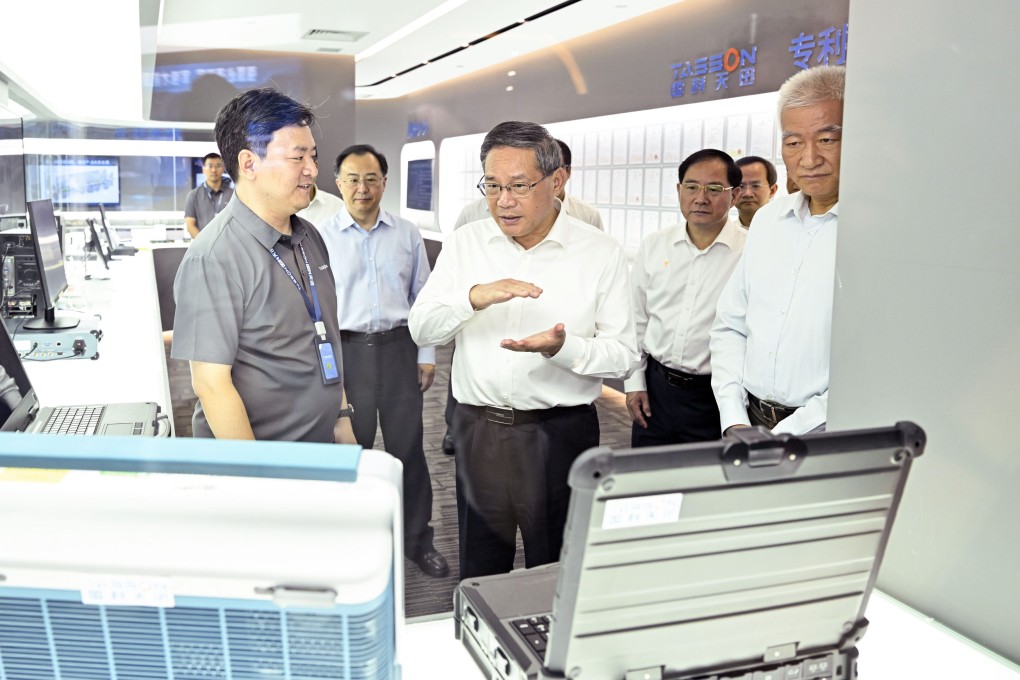Chinese Premier Li Qiang pushes hi-tech firms to do more to boost Beijing’s self-reliance in face of US restrictions
- While visiting tech powerhouses, Li says industry should transform into one that concentrates on high-end, intelligent and green technology
- State Administration for Market Regulation rolls out 22-point package on Friday intended to boost confidence among companies

Li made the remarks on Thursday as he visited three of China’s leading technology powerhouses, including Beijing U-Precision Technology, an emerging builder of chip-making machines with years of experience in nano-scale ultra-precision measurement and control technology.
“Our country’s economy is at a critical juncture in high-quality development, and we must further enhance our confidence in development and maintain our focus on transformation and upgrading,” Li said, according to state news agency Xinhua.
Li Qiang’s inspection came at a time when all eyes are on China, which is in the throes of an economic slowdown.
Even though Li views technological innovation as a key foundation for high-quality economic development, China is currently struggling to counter technological clampdowns from the West.
